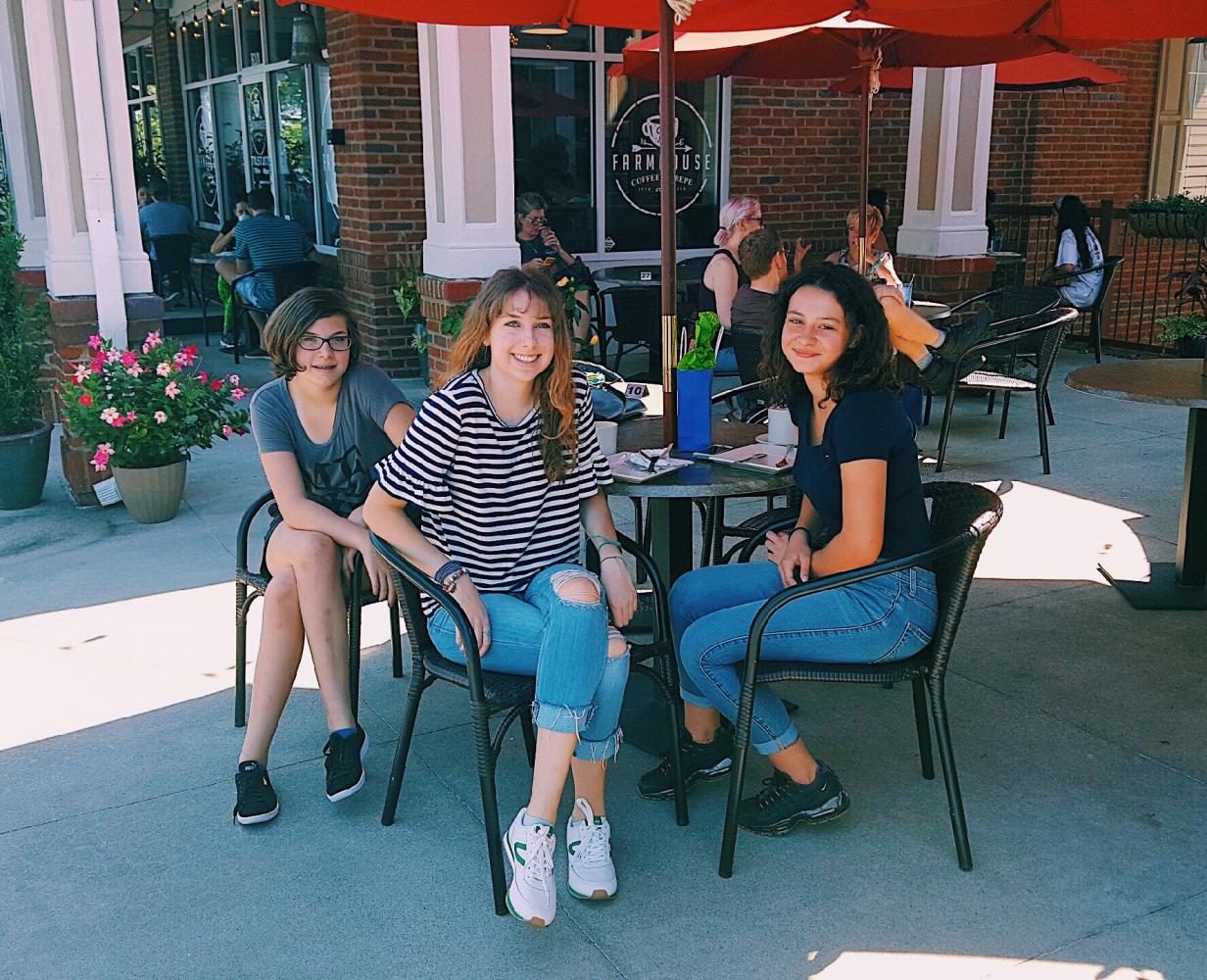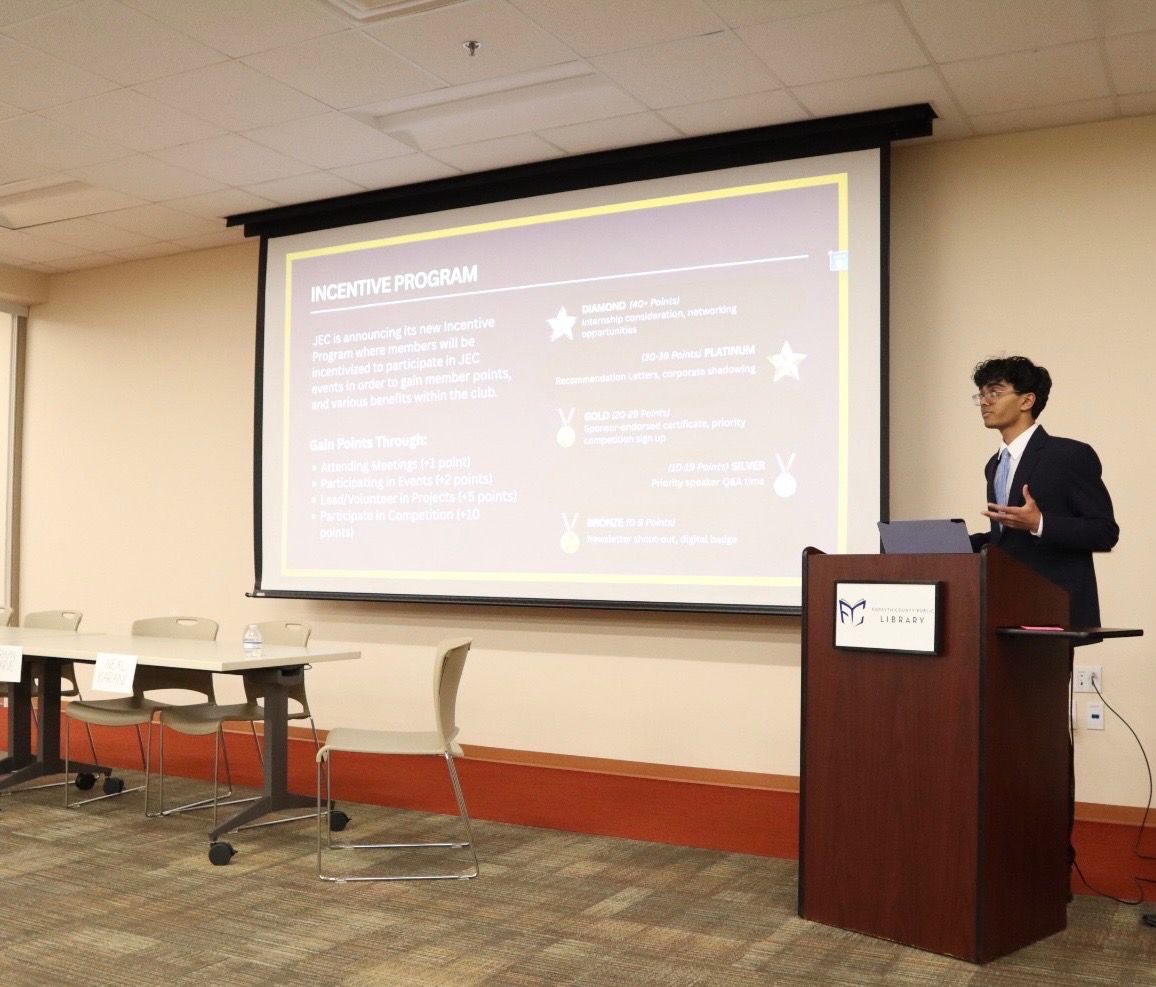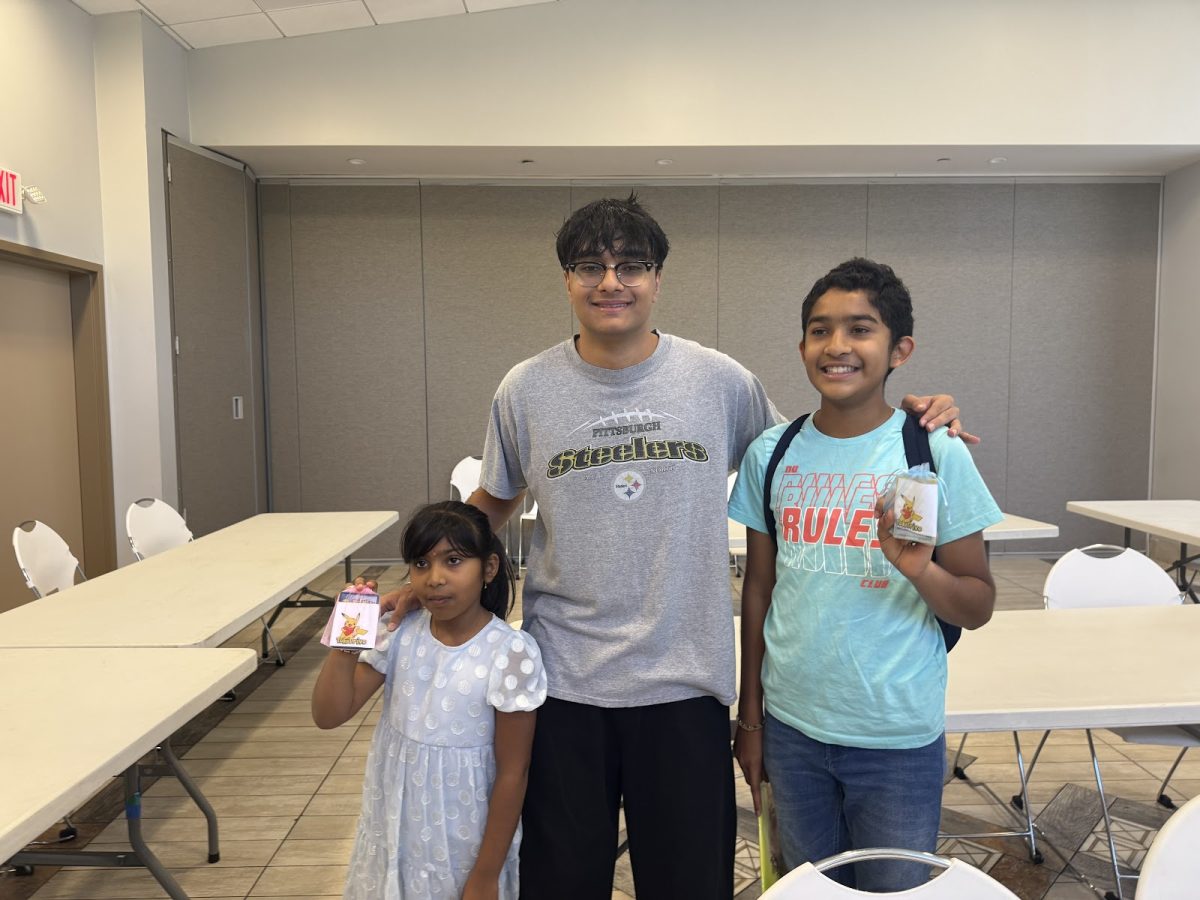Summer in Toulouse
Lea, my sister and I eating at a French cafe, discussing French and American lifestyles. At this particular cafe they had a wide selection of crepes. Though they were good, they were not the same as the those found in Lea’s home of Toulouse.
September 13, 2017
Over the summer I had the opportunity to get to know Lea. Lea is a bright and spunky teen from Toulouse, France, who is currently learning English. In attempt to strengthen her language skills, she spent her summer over here with her American relatives, all of whom happen to be my neighbors. Of course, when I heard there was a French foreigner living a few doors down, I jumped to the proposition of hanging out and asking my most burning questions of lavish French living. What does Paris look like at night? How does it feel to be completely surrounded by history? How probable is the plot of Midnight in Paris? Does the entire country of France smell like Chanel No.5? Is the cheese really that good? Immediately, I was imagining living out my Funny Face fantasy of going to artsy poetry slam bars dressed in all black, or roaming around Paris with a large batch of balloons, or ascending down a staircase wearing a scarlet dress with “fire in my eyes and murder on my mind.” Truly the list went on and on. However, when I met Lea and we got to talking, I was surprised to hear how she romanticized the fast food, the mall, and the language of the U.S. I couldn’t understand how someone would want to trade the French street markets and a countryside filled with lavender during the summer season for Chick-fil-a and Urban Outfitters. It was an ironic situation, neither one of us could believe the other would want to switch lives but, as we soon discovered, France isn’t completely what I thought (I still terribly want to visit) and America wasn’t all of what she had in mind.
The first surprising “American” phenomena Lea told me about was the traffic. Lea comes from Toulouse, France, population of 441,802. Compared to the Atlanta metropolitan area population of 5,710,795, it’s understandable that traffic here would sting any outsider not used to the amount of cars all on the road at the same time. Also in Toulouse, much like any other place in France, people tend to use bikes, subways, and their feet to get around. Cars aren’t uncommon but, they aren’t as much as a necessity as we make them out to be here in the US (mainly due to how we lay out our cities and the amount of people crammed into one area). The cities in the US contrast to France’s architecture, in that the buildings are, to use Lea’s words, “new.” While that may not be true everywhere in America, it certainly does not have as many preserved historic buildings compared to France, among other European states, where western civilization was virtually born. The houses too, Lea mentioned, are much larger than the homes found in France. French homes tend to be more cottage-style without a basement; or, for most who live in a city, an apartment is the common living accommodation. Not only did the lifestyles vary between France and America but, their societies themselves had their own distinctions.
French society is rich with food, language, and culture. The same is said about America, but with a melting pot of different food, languages, and cultures. Lea loves using the English language because it’s something new for her, but she was surprised to hear all different types of languages and dialects found in the US. In France you’ll catch an occasional dialect differentiation, but French is French and unless you are arguing over the pronunciation of chocolatine (or “pain au chocolat” if you are from northern France), you will hear the same deep velvet-sounding language of love. Greetings (Goodbyes as well) are usually carried out with a kiss on each cheek for friends and two on both for family. The school system is also different from the systems found in the US. French middle school goes to 9th grade, with high school starting at 10th and going through 12th. French high school consists of relatively the same classes found in the US, but they do stress language classes. Most students take Spanish, English, and other common languages found around the European region. Lunches last for a generous hour and a half and students are able to work, lounge, and converse with one another, compared to American schools where students are forced to inhale their food in the span of 20 minutes without drawing for breath. The high school doesn’t have a theater or art department and sports are not emphasized. Teens then go out to the community to find extra curricular activities to pass their free time. This usually includes having picnics or various recreational activities, such as walking around and going shopping. Interestingly, American clothing brands are marked up in the French market so Lea was able to purchase some clothing from her favorite brands at a lower price. It seems America does have excellent shopping venues and restaurants but, Lea insisted that the US cheese and bread can not compete with that of the French. The food overall tastes better in France and is healthier than most found in the US. I have to whole-heartily agree with her or else my expectations of the French Cuisine are crushed. Besides the distinct school structures and social encounters, the only other very different aspects of America and France are the people who inhabit them.
Contrary to popular belief, not all Americans are loud and large Uncle Sams who walk their bald eagle after Sunday church service, just as not all French are dim-witted romantics whose noses are larger than their baguettes. Each country has their own mix of people but, there is a certain common connotation found among the groups. Lea says that the French tend to be more reserved and like to keep to themselves. They don’t usually say, “hi” to strangers walking by or give a passing smile. She says that, at least in Atlanta, people will acknowledge you, ask you how your day is, give you a sample of the good ‘ole southern charm. The people made her trip more enjoyable.
Exploring foreign countries is an excellent way to see the different cultures and upbringings of a country, but observing the people creates a picture of the type of lifestyles found in a particular area. The experience becomes more genuine and sentimental as you realize you have more in common with people from all over the globe. This was certainly the case when I talked to Lea. We were able to laugh about our common disgust for homework and nerves for school. We could debunk the stereotypes of every American living in New York City or LA and every French person living in Paris, or all French relaxing on nude beaches and all Americans eating their equivalent weight in burgers. I didn’t even have to leave Atlanta, let alone Forsyth County, to get a feel for France, for I had my own navigator walking me through the French way of life while I was able to instruct Lea on American living.
Discovering the similarities and differences between our countries made our world seem smaller and strangely enough, universal. Who knows? Perhaps one day we may actually switch lives and live the other we think so exotic. Lea could be driving a car around the US and making it to all the national parks, while I could be riding my bike to a French farmer’s market and making it to all the crêpe stands. The world tends to work in mysterious and almost comical ways. With all that said, I bid you adieu and hope I’ve sparked an interest to get yourself out there, conversing with other people of our magnificent earth.
“rester c’est exister mais voyager c’est vivre”– Gustave Nadaud











